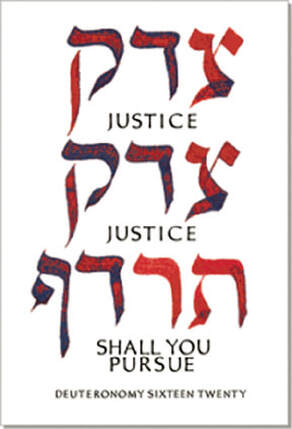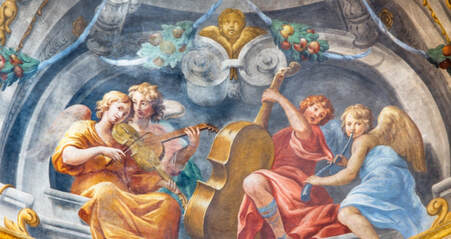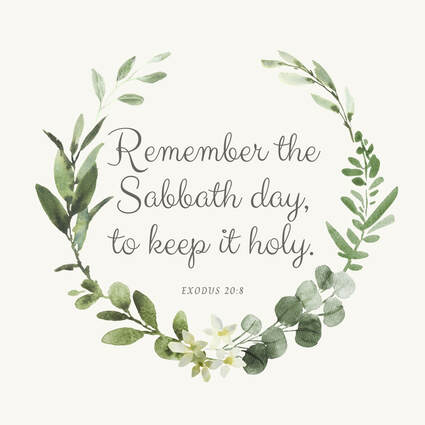
Sunday, December 10, 2023 – Advent 2
First Congregational Church of Cheshire
© the Rev. Dr. James Campbell
Mark 1:1-8
The beginning of the good news of Jesus Christ, the Son of God.
As it is written in the prophet Isaiah,
“See, I am sending my messenger ahead of you,
who will prepare your way;
the voice of one crying out in the wilderness:
‘Prepare the way of the Lord,
make his paths straight,’”
John the baptizer appeared in the wilderness, proclaiming a baptism of repentance for the forgiveness of sins. And people from the whole Judean countryside and all the people of Jerusalem were going out to him, and were baptized by him in the river Jordan, confessing their sins. Now John was clothed with camel’s hair, with a leather belt around his waist, and he ate locusts and wild honey. He proclaimed, “The one who is more powerful than I is coming after me; I am not worthy to stoop down and untie the thong of his sandals. I have baptized you with water; but he will baptize you with the Holy Spirit.”
+++
The Gospel of Mark is a gospel-on-the-go! It has Jesus running from one event to the next, with hardly a breath in between. It uses the word “immediately” 41 time in sixteen short chapters. In fact, the whole narrative moves so fast that Mark skips right over Christmas; right over the angels and shepherds and stars.
So that makes Mark a rather odd lectionary choice for Advent, preparing, as we are, for the birth of Jesus. And it’s odder still for its messaging in the reading today. Christmas is a season of peace and good will, but Mark opens his Gospel with the call to repentance. And Mark makes the bold claim that this message of repentance is, and I quote, “The beginning of the Good News of Jesus Christ, the Son of God.”
He’s right, you know. Repentance is the beginning of the good news. But it’s only good news once you understand what repentance is and what it does for us. And it’s not what most folks think.
But before we get there, let’s back up a little to the person who preached the message. So, just who was this Wildman of the Wilderness named John the Baptist? Well, he was a slightly older cousin of some kind to Jesus. And John was a classic apocalyptic preacher, a kind of preacher and message that was very common in that time. These folks preached the imminent end of the world and the in-breaking of the Kingdom of God and the need for people to get themselves ready.
In some ways, I guess John was like those New York City street preachers I used to assiduously avoid on the sidewalks and subway trains. They would be carrying on, at full volume, about sin and judgment, and I would just roll my eyes and get as far away as possible.
But, apparently, John’s message had the opposite effect. Historians tell us that people flocked to the wilderness to hear him by the tens of thousands. John was viral before viral was a thing! Now, maybe his animal skin clothing and odd diet added to the spectacle of it all, but it was his message the electrified the crowds. And it was his message that Mark insists is “the beginning of the good news of Jesus Christ, the Son of God.”
And his message, simply put, was REPENT! Not peace and good will, but REPENT! Not Merry Christmas or Happy Holidays, but REPENT!
How about that message on a Christmas card? Or maybe we should sing: “Silent Night, Sinful Night”? or “O Come, All Ye Wicked”? Maybe instead of hand-held candles on Christmas eve, we should light the place up with some fire and brimstone!
Still, Mark says that there’s good news in that. But it’s a hard sell at Christmas time, let me tell you. And not an easy message for many of us to hear at any time - and for all kinds of reasons.
For some, it was the church they were raised in, where repentance and talk of sin were used as weapons and a means of control. --Others already feel so bad about themselves that having someone else reminding them that they are not perfect is just a bridge too far. And still others come to church to escape the constant negativity of our culture and politics. And repentance just sounds like more of the same finger-pointing.
But what is repentance, exactly? Let me start by telling you what it isn’t. Repentance is not about feeling really, really bad about what you have done or said or thought or failed to do. It’s not about self-loathing. It’s not about begging or groveling for acceptance. And its goal is not guilt. We all have enough of that already! As my mentor in ministry, the late Rev. George Bailey used to say: “Ah guilt. The gift that keeps on giving.”
But guilt and fear and regret cannot be the end game of something called “the beginning of the good news of Jesus Christ.” How odd, then, that so many churches make guilt and sin the beginning, the middle, and the end, as if that is all we are or all we could be.
In the Greek of the New Testament, there are two words that are translated for us as “repent.” The first of those is Metanoeo. It’s a compound word. “Meta” means change and “noeo” means thinking. So, metanoeo simply means, to “change your mind; to change your thinking.” And while that might sound rather innocuous, when you have an experience that really changes your mind, your whole life follows suit. These are the “Aha!” moments that we look back at and realize that they changed everything.
The second Greek word for repent is Metamellamai. This is also a compound word. “Meta” means change and “mellamai” means emotions – to change the way you feel and react, which so often happens when you change the way you think. And when my thinking is really changed, the resulting emotion is like being born again. Mark referred to it as a “baptism of repentance.”
After the people heard John’s message of change, he then invited them to be baptized in the River Jordan. Now, John could have baptized them in a pond or a lake or watering trough. But instead, he chose a river.
And while that might seem like a nothing detail, God is in that detail. A river is a symbol of repentance and new life. Because a river is dynamic, full of movement and change. The water itself is on a journey. What you see one moment, changes the next. A river constantly reinvents itself. A river carries everything away. And God’s grace is like a river where, we are baptized for the forgiveness of sins. A baptism of forgiveness.
Maybe you need to forgive someone and you struggle with that. I carry an old and very deep hurt inflicted by someone I trusted. And to this day, every time we get to the phrase in the Lord’s prayer: “And forgive us our trespasses as we forgive those who trespass against us,” it is her face I see. It is that pain of betrayal I feel. But here I stand, at the river. Can I let it go? Can I let the river carry it away?
Maybe you need to receive forgiveness from someone else. Maybe you have asked. Maybe they are slow to give it. Maybe they will never give it. But can you give that to God? Can you let the river carry it away?
Or maybe you need to forgive yourself. Maybe you are haunted by something you did or said that created pain. Some of those things can be remedied. Others can’t. But here we stand on the banks of the Jordan. Can we toss it in? Can we change our minds?
Repentance is the beginning of the Good News of Jesus Christ, the Son of God. Repentance is Christmas every day of the year. It’s a gift we give to others. It’s a gift we give to ourselves. It’s God’s gift for the whole world. And it prepares the way of the Lord.









 RSS Feed
RSS Feed